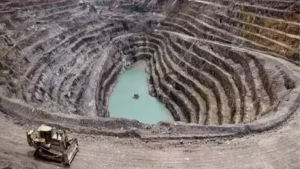India Eyes Rare Earth Partnership With Myanmar to Reduce Reliance on China
India Explores Rare Earth Partnership With Myanmar to Reduce Reliance on China

India is reportedly working to secure rare earth mineral supplies from northeastern Myanmar in a bid to counter China’s dominance in the sector, according to a Reuters report citing sources familiar with the matter.
The Ministry of Mines has directed both state-owned and private companies to explore and collect mineral samples from areas under the control of the Kachin Independence Army (KIA), a powerful rebel group that dominates key mining regions. Government-owned IREL and Midwest Advanced Materials, a private firm backed by state funding last year to produce rare-earth magnets, are among those involved. The samples will be tested in Indian laboratories to assess their suitability for manufacturing magnets essential to electric vehicles and advanced technologies.
This collaboration represents a rare instance of the Indian government engaging with a non-state actor. Sources said representatives from involved companies, including IREL, participated in a virtual meeting with officials in July. The KIA has begun collecting mineral samples and is also considering larger export volumes to India, though logistical hurdles remain.
China’s Stronghold and India’s Push for Diversification
China currently maintains near-total control over rare earth processing and has tightened export restrictions, prompting India to accelerate diversification efforts. While the KIA has traditionally supplied rare earths to Beijing, New Delhi is seeking to build direct access to these resources to reduce reliance on China.
Prime Minister Narendra Modi has previously acknowledged discussions with Myanmar’s military leader, Min Aung Hlaing, regarding rare earth mining, though no formal agreements have been announced. Alongside resource acquisition, India is exploring collaborations with Japan and South Korea to build large-scale processing capabilities.
Geopolitical Stakes and Challenges Ahead
The KIA, founded in 1961 to advocate for the Kachin community, controls deposits of heavy rare earths such as dysprosium and terbium—critical for high-tech industries. Since Myanmar’s 2021 military coup, the group has been in conflict with the junta, complicating regional stability. While China continues to support the junta, the KIA’s growing cooperation with India signals shifting regional dynamics.
India is keen on a long-term supply arrangement but faces significant logistical challenges in transporting resources through rugged terrain. Analysts warn that even if India secures a steady flow of minerals, scaling up processing capacity without access to Chinese technology will require substantial investment and time.
- India Eyes Rare Earth Partnership With Myanmar to Reduce Reliance on China - September 10, 2025
- Apple iPhone 17 Pro Max vs iPhone 17 Pro vs Samsung Galaxy S25 Ultra: Ultimate 2025 Flagship Comparison - September 10, 2025
- Israel and India Sign Investment Deal Amid Gaza War Controversy - September 9, 2025
